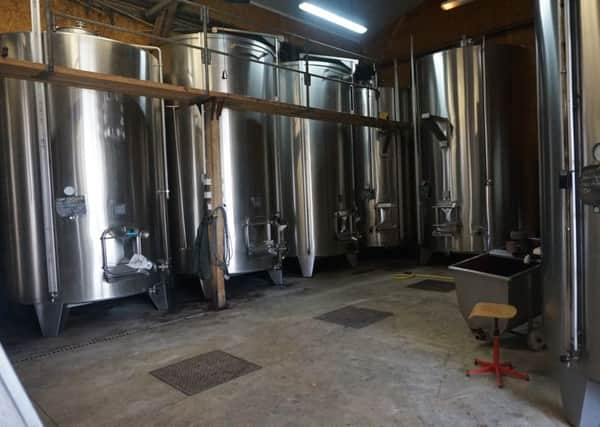Opportunities for good returns from investment in the wine industry


A new organisation called Winefunding, offers investments starting at just 1,000 euros, which may also take the form of loans, re-imbursed in wine. The idea behind the investment organisation stems from a funding gap currently apparent in the industry. Many talented wine-makers and vineyard owners have difficulty in convincing conservative bankers of the merits of their new or on-going projects. On the other side, there is a number of passionate wine lovers with a desire to invest in projects close to their hearts.
The wine projects seeking investment are varied, ranging from the renovation of a wine property, modernisation of an outdated winery, to conversion of a vineyard to organic or biodynamic status.
Advertisement
Hide AdAdvertisement
Hide AdAccording to Maxime Debure, founder of Winefunding, general funding organisations find it difficult to assess the investment criteria of projects in the wine industry. A specialist committee of wine experts has thus been assembled to assess the projects, including a top sommelier, the founder of one of the leading French wine guides and a consultant wine-maker.
One project which has been approved for investment concerns the renovation of a wine chateau and it’s 30-acre vineyard in Lussac Saint Emilion, located in the Bordeaux region. The amount required is one million euros which is currently being raised.
For the smaller sums invested in the fund, that is less than 100,000 euros, due to complicated legal and administrative procedures, Winefunding has developed an innovative form of loan. The smaller sum involved is treated as a loan over two to five years, but rather than being paid back in money, it is paid back in cases of wine. For example, a 500 Euro loan to a wine producer over three years, is repaid with 200 Euros equivalent of wine each year, making a total repayment of 600 euros - a not insignificant 20 per cent gain.
Back in the UK, Andrew Della Cassa of the Wine Investment Fund, which invests in wine rather than wine producers, believes that Brexit has created the perfect opportunity to invest. “Fine wine has unique characteristics which make it the ideal asset to hold during periods of market uncertainty.” According to the London based Wine Investment Fund, fine wine tends to perform well when Sterling is weaker. This is due to the fact that wine is priced in Sterling, yet the majority of buyers are from countries such as the USA, China and Japan. The weaker pound is advantageous to these buyers, which stimulates demand. The overall value of the fund thus increases.
As ever, seek professional advice before investing, as the value of funds may fall as well as rise.